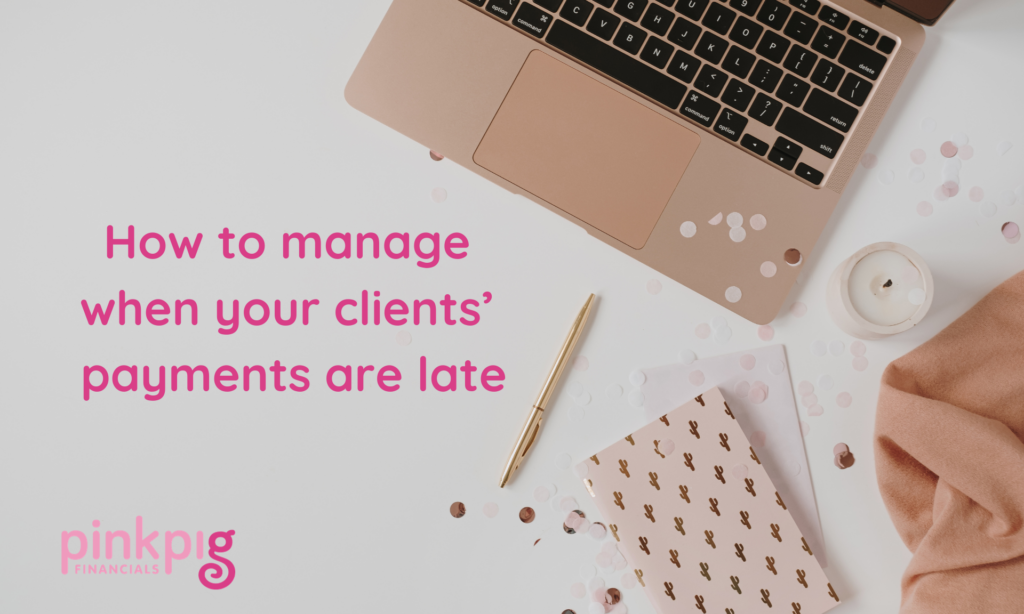There is no escaping it. We are all feeling the impact of the cost-of-living crisis, consecutive interest rate rises, fuel increases and increased outgoings to name just a few. It’s hard to escape this both in our personal lives and for those with a business to run.
When you’re running a business, you rely on sales and you trust your customers to pay their invoices in a timely manner. When they don’t, the knock on effects can be brutal. With less money coming in, cashflow tightens and it becomes harder to pay your own bills on time. We call this the ripple effect.
Late payments to small businesses have been bad for a while, but it is getting worse.
Some large companies seem to think that because they are bigger, they can set their own payment terms, choosing to pay when best suits them. We’re used to them using the maximum 30-day payment terms (or whatever your terms are), and many often leave it till the last possible day before paying.
But what do you do when the invoice goes unpaid over its 30-day terms?
As a small business, the approach has generally been to either put up with it or not take on the work. Neither of which are particularly ideal situations.
It has recently been reported that over half of small businesses in the UK are owed money from late payments, fuelling stress and cash flow problems for business owners. Furthermore, 39% of small business owners say their mental wellbeing has suffered because of late payments and over a third have had sleepless nights.
Earlier this month we heard that the late payments watchdog set up by the Small Business Commissioner to regulate companies that are late paying small businesses has only managed to claw back just shy of £800,000 in the last two years. The late payments watchdog was set up to specifically impose fairer payment practices for Britain’s small businesses and support them when trying to resolve late payment disputes with larger companies. With figures like this, it doesn’t fill us with much hope.
The reality is that if payments are late, small business owners don’t have the cashflow coming in to pay their suppliers, and staff, meaning they then make late payments to their suppliers and the cycle continues. It can also mean late tax payments as the money is not there to pay tax bills. The business may have to obtain costly funding to keep on top of paying the bills, in extreme cases it can also mean that the small business has to close as the cashflow just isn’t there.
But there are ways to mitigate the impact of large companies paying late.
Here are our top five tips:
Be clear about payment terms and deadline
Make sure that all invoices have clear payment terms. Most companies will set a 30-day payment term. You should also ensure that there is a due by date clearly marked on any invoice
Consider your cash flow position
Know how much cash you have in the pot and work out how long you could cover your business expenses and outgoings while awaiting payment. Where possible, consider keeping cash aside in an emergency pot to protect the business from late payers. PPF can help with financial forecasting and advise on this.
Find our more about it here: Our Cash Flow Forecast and Management Services
Clear communication
Keep ongoing conversations with the customer going. The more you stay on their case, the more likely they are to pay you. Can they pay some of the amount now to show commitment, with the rest to follow?
Consider using a factoring company
For a fee, a factoring company will pay the late invoices and then seek to recover the costs themselves. This enables the small business to release cash faster and cover expenses.
One option is using IwocaPay to allow your client to pay over 3 or 12 months, but you get paid upfront with IwocaPay taking on the payment plan. You can pick if it’s free for you, or interest free for your customers and there’s no hidden subscription fees and no maximum or minimum number of invoices you can use iwocaPay with.
Find our more about it here: Getting paid quicker and upfront with iwocaPay
Negotiate shorter payment terms
If a client is a serial late payer, can you negotiate shorter payment terms? If they pay a monthly fee, for example, suggest invoicing quarterly in advance to avoid late payments.
Not a Client Yet? Let’s Change That!
If you aren’t yet a PPF client, consider joining us! Our team is here to help transform your finances so you can spend more time on what matters most.
We take the stress out of your accounts, maximise your time, and provide the expert guidance you need to reach your goals.
Complete our Quick Questionnaire and we’ll be in touch to book in a 15 min Discovery call shortly.

